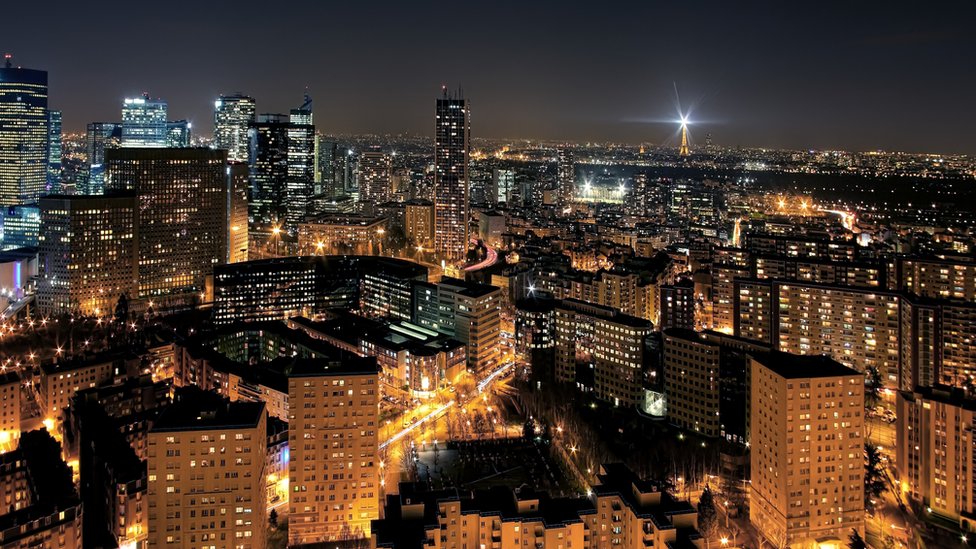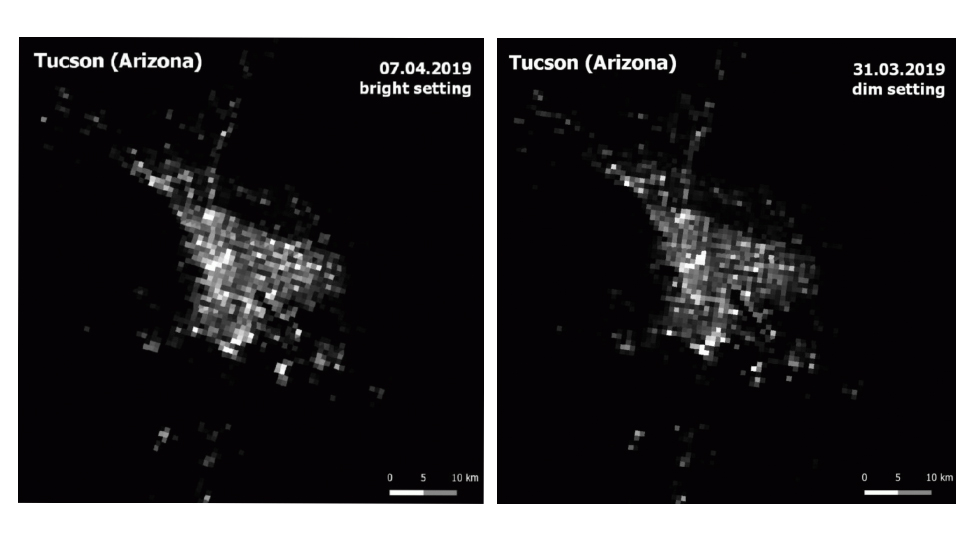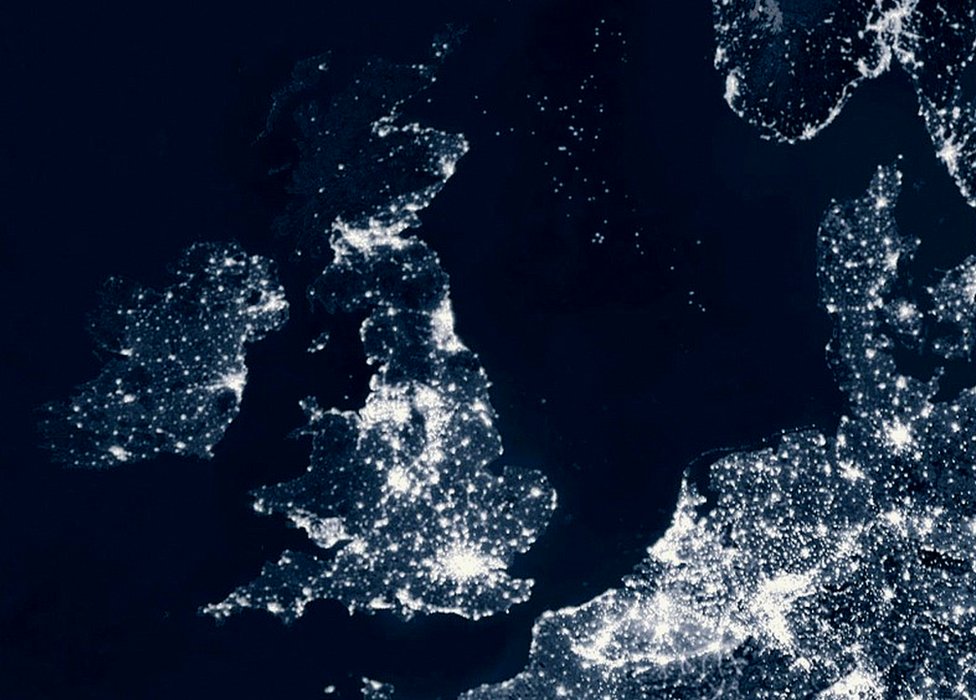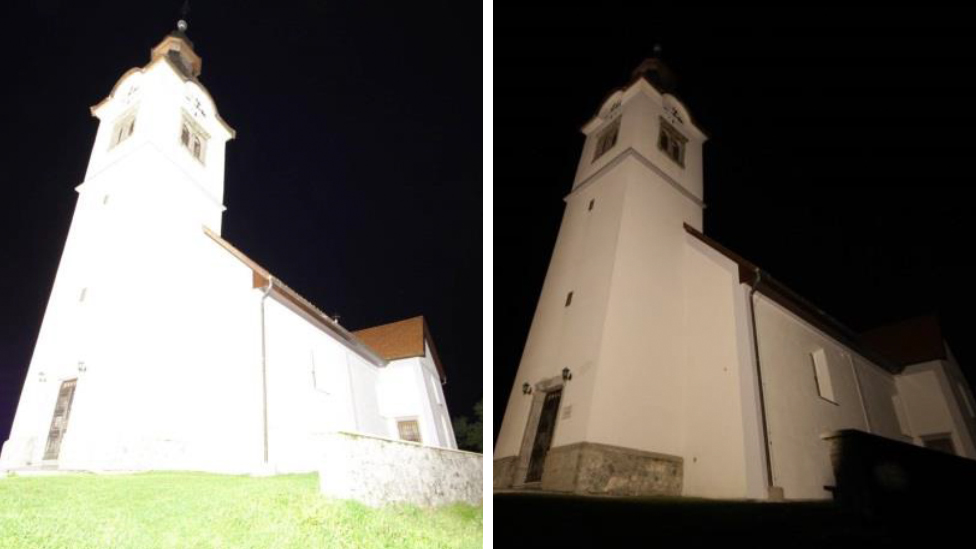Light pollution's wasted energy seen from space
By Victoria Gill
Science correspondent, BBC News
-
- Published

The city of Tucson, in Arizona, US, dimmed its 14,000 streetlights over that period.
"We used a satellite to measure what fraction of the total light emissions are due to the streetlights," explained physicist Dr Christopher Kyba.
Artificial light has been shown to affect our sleep and our health.
"And late at night, when people are sleeping - that is exactly when we can save a lot of energy," Dr Kyba, who is based at the German Research Centre for Geosciences in Potsdam, told BBC News.
His light-from-space experiment, published in the journal Lighting Research & Technology, showed that most of the artificial light wasted - by being sent upwards into space, rather illuminating a sign, street or building on Earth - does not actually come from streetlights, but from other sources.
Prof Kelsey Johnson, an astronomer from the University of Virginia, who gave a
TED talk about ways to solve the light pollution problem, told BBC News: "We waste tremendous resources on light that goes out into space and doesn't do anyone any good."
Advertisements, floodlights, lit buildings, facade lighting, parking lots and sports stadia - these are the types of installations responsible for most of these light emissions, Dr Kyba explained.
"That's really important information for policy makers and light pollution activists," he said.

"This does make it more difficult to solve, because there are so many contributors. It means everyone has to get together to decide what lights need to be lit at night, and how brightly."
Wasting energy while we sleep
Because emissions come from so many sources, the exact amount of energy wasted on inefficient or unnecessary artificial light is difficult to estimate. But the International Dark Sky Association estimates that 35% of artificial light is wasted by being poorly aimed or unshielded. This equates, in the US alone, to about $3 billion per year spent on "making the sky glow".
That familiar urban glow means that most people on Earth never see a naturally dark night sky, but it also affects migrating birds, insects and other animals, by disrupting the light-dark cycle they are tuned into.

More philosophically, Prof Johnson and other astronomers argue that this wasted light destroys our connection to the stars.
"I believe this has a profound effect on our worldview," she said. "I'm heartbroken for all the children growing up today who will never experience a truly dark night sky." And according to a 2016 study, that could be true for as much as 80% of the global population.
A bit of clever lighting
One recent project with a floodlit church in Slovenia - a country that passed a law to curb increasing light levels - revealed how relatively straightforward the problem is to solve.
A lighting company re-lit a church in a way that reduced the power consumption for the light by 96% (from 1.6 kW to only 58 W). It also reduced the total waste light emission by using simple masks to shine the light just directly on the church.

"A lot of people talk about climate emergency but never talk about light pollution," said Dr Kyba. "But it's an important part. And at night, when most of us are asleep, all that electricity could be going to do other things - charging electric vehicles, for example.
"It's the kind of thing that can be done with a little bit of cleverness and the will to take action."
Follow Victoria on Twitter
"from" - Google News
October 29, 2020 at 01:40PM
https://ift.tt/3jxN8Oo
Light pollution's wasted energy seen from space - BBC News
"from" - Google News
https://ift.tt/2SO3d93
Shoes Man Tutorial
Pos News Update
Meme Update
Korean Entertainment News
Japan News Update

No comments:
Post a Comment